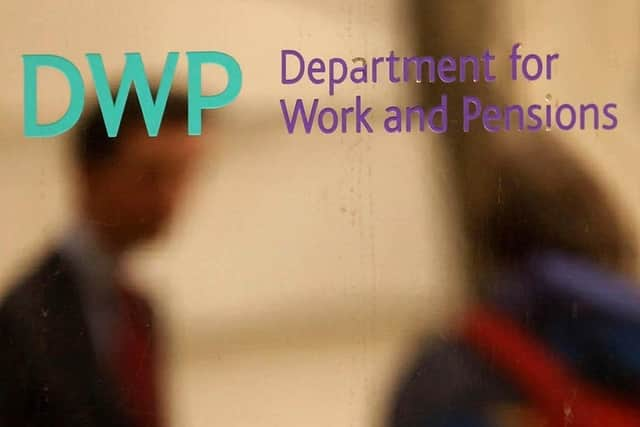Are you one of over a million people missing out on Universal Credit? - Martin Lewis


And don’t automatically assume it’s not you. The benefits net stretches up higher than many think. I’d certainly be checking this out if you have total family income under £30,000, especially if you have kids (I’m not saying you’ll get it, just that it’s worth the time to check).
Yet even some earning as high as £50,000 may just be eligible if you’ve heavy rental costs. What you should do depends on whether you already receive any welfare benefits or not – use a 10-minute Universal Credit and benefits checker tool to see if you’re due. While there are over a million people likely missing out on Universal Credit, that number is far bigger if you look at all benefits. For example, pension credit is widely unclaimed – it’s thought around 40 per cent of those eligible don’t get it even though they could.There are tools out there that can help you. I’ve got one on my site at www.mse.me/BenefitsCalc and there’s also one at www.turn2us.org.uk. Make sure you have your details to hand, and it shouldn’t take more than ten minutes to find out what you’re likely to be entitled to, and how much it could be.Christine did this recently and emailed to say she would be over £2,000 a year better off: “We completed it to see if we're eligible for housing benefit. It said we were, plus carer's allowance. We applied and will get £40 per week backdated until September. We're over the moon. Can only encourage others to do it, you'll never know unless you try. Thanks, Martin and staff.”
Advertisement
Hide AdAdvertisement
Hide AdIf you tried before November, it can be worth trying again. Around 600,000 extra working families are now eligible for universal credit due to changes that hit at the end of last year.Work allowances increased by £42 per month. This is the amount those in households with children, or those with 'a limited capacity for work', can earn before Universal Credit starts to drop. If you earn over your work allowance, you keep more of the benefit. The amount of Universal Credit you receive is reduced if you earn over this, but now you keep 45p per £1 of earnings, rather than 37p. Together these mean both that more people are eligible and that many who already get it now get more.
On legacy benefits (eg tax credits or income support) – does Universal Credit pay more? There are three million people still on old style benefits: tax credits, income support, housing benefit, income-based jobseeker's allowance and income-related employment and support allowance.If you’re on one of those, you'll eventually be moved to universal credit which replaces them all. Yet this may take years. So it’s worth checking if you’d be better off switching now.
This isn’t easy though, and you need to get it right, as once you request to go on Universal Credit, there’s no going back – even if you find out that you’re getting less as a result. So I’ve three simple steps for you.Check if you’re in a category likely to be better off switching. If you work and pay rent, especially in a city, then you’re in the sweet spot where this may work. Same too if you’re at the higher end of earnings that still allow you to get benefits. On the other hand, if you’re a single parent and/or have a disability and you work but don’t pay rent, or you’re self-employed earning under £1,200/month, then you’re likely to be worse off on Universal Credit. Same too if you’ve a decent whack of savings, especially if they’re over the £16,000 cut-off.If you’re in the right category, use a benefits calculator. It will tell you if you’re likely to be better off and by how much. But bear in mind these tools are ready reckoners that don’t include everything – so only treat this step as a jumping off point to see if you should do more.If the calculator shows you’ll make a decent gain, don’t do anything without one-on-one help. There are a lot of changes in the move to Universal Credit. You’re usually paid monthly and must budget (tricky for some with impulse control or addiction problems). It’s one payment to the household (a possible issue for those in financially abusive relationships). The first payment takes five weeks though you can get an advance to cover it. The work rules may be different; some have to do 35 hours of ‘work-related’ activities a week.And most importantly if you have certain debts, including council tax, rent and energy bills, up to 25 per cent can be taken off the standard Universal Credit payment which can scupper things (and that’s not included by the calculators).So you can see why I say go through it with a professional before taking the plunge. The government runs a free guidance and information service called www.moneyhelper.org.uk, which offers the option to chat (online or phone) with an adviser – make use of it.Or you can get free one-on-one benefits check-ups from www.citizensadvice.org.uk or www.advicelocal.uk.
Martin Lewis is the Founder and Chair of MoneySavingExpert.com. To join the 7.5 million people who get his free Money Tips weekly email, go to www.moneysavingexpert.com/latesttip
Comments
Want to join the conversation? Please or to comment on this article.